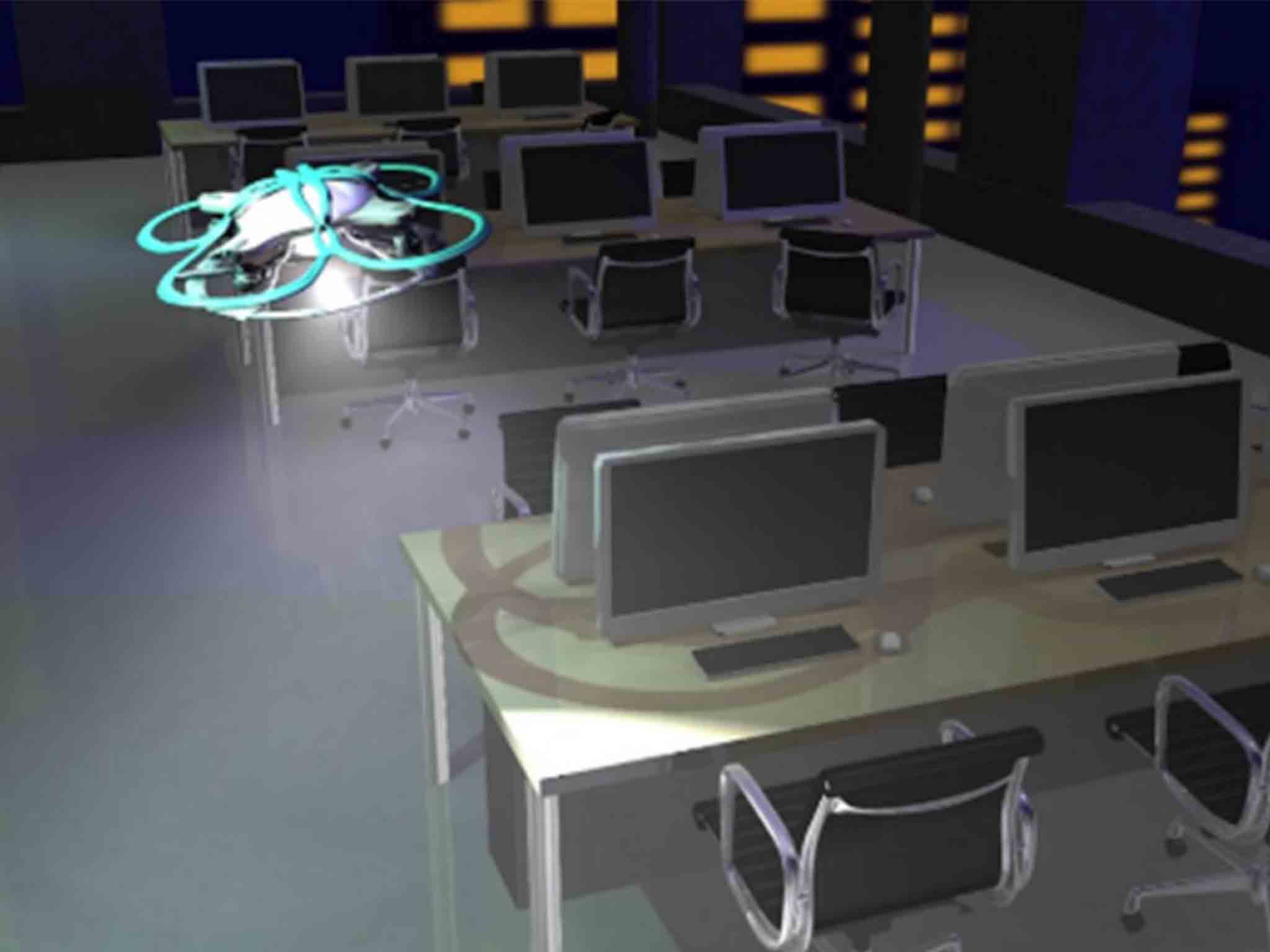Japanese company will deploy music-blasting drone in bid to force workers to leave office
T-Friend will hover over employees' desks playing Auld Lang Syne in attempt to stop late-night overtime

Your support helps us to tell the story
From reproductive rights to climate change to Big Tech, The Independent is on the ground when the story is developing. Whether it's investigating the financials of Elon Musk's pro-Trump PAC or producing our latest documentary, 'The A Word', which shines a light on the American women fighting for reproductive rights, we know how important it is to parse out the facts from the messaging.
At such a critical moment in US history, we need reporters on the ground. Your donation allows us to keep sending journalists to speak to both sides of the story.
The Independent is trusted by Americans across the entire political spectrum. And unlike many other quality news outlets, we choose not to lock Americans out of our reporting and analysis with paywalls. We believe quality journalism should be available to everyone, paid for by those who can afford it.
Your support makes all the difference.A Japanese company will send drones blaring loud music around its offices late at night in a bid to force workers to go home.
Construction firm Tasei has announced its new “T-Friend” drone will hover over the desks of employees who refuse to leave at the end of the day.
Those reluctant to clock out will be blasted with a recording of Scottish folk song Auld Lang Syne, commonly used by shops in Japan as a warning they are preparing to close.
Tasei expects to see the autonomous drone, which is being produced by Blue Innovation and telecoms company NTT East, patrolling its offices by April next year.
In a statement, the company said: “T-Friend not only strengthens the security of the office space at night, but also urges departure by regular patrol.
“It has effects such as restraining overtime work and can be used to improve workplace environment for reform of workers.
“The user will be able to perform a tour around the office by setting the drone travelling time and route.
“It will encourage employees who are present at the drone patrol time to leave, not only to promote employee health but also to conduct internal security management.”
Karoshi, which translated means “overwork death”, has long been a problem in Japan, with cases of workers dying due to stress and long hours being so widespread the government publishes official statistics on the phenomenon.
Many corporations have taken steps to combat the issue, including limiting overtime hours and attempting to force employees to leave their desks at a certain time.
The T-Friend has been criticised by a number of experts in Japan, who doubt its ability to prevent workers staying late at the office.
Scott North, professor of sociology at Osaka University, told the BBC: "Even if this robotic harassment gets workers to leave the office, they will take work home with them if they have unfinished assignments."
"To cut overtime hours, it is necessary to reduce workloads, either by reducing the time-wasting tasks and tournament-style competitions for which Japanese workplaces are notorious, or by hiring more workers."
Join our commenting forum
Join thought-provoking conversations, follow other Independent readers and see their replies
Comments